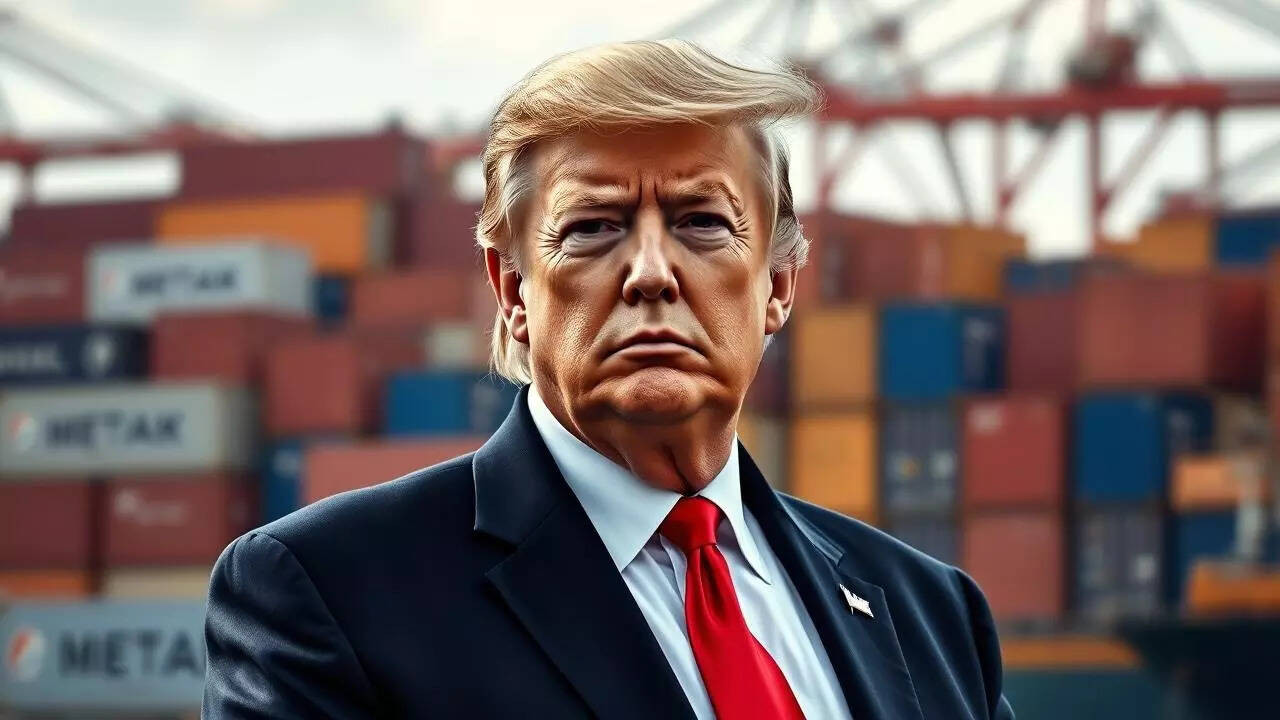Donald Trump’s threat to impose 30% tariffs on EU and Mexican exports from August 1 has sparked strong reactions. Ursula von der Leyen criticized the move, vowing countermeasures to protect EU interests while remaining open to negotiation. Mexico rejected the tariffs as unfair, signaling a willingness to continue dialogue despite the looming trade conflict.
Bracing for Impact: Could Trump’s Tariff Threat Upend Trade with Mexico?
The winds of trade war are picking up again, and this time, Mexico finds itself squarely in the crosshairs. Former President Trump’s recent pronouncements about potentially imposing tariffs on Mexican goods have sent ripples of unease throughout the global economy. The proposal – a potential 30% levy – is already drawing sharp rebukes and dire warnings. What’s behind this, and what could it mean for businesses and consumers alike?
The stated rationale behind the potential tariffs centers on concerns about immigration and border security. Trump has publicly voiced his dissatisfaction with Mexico’s efforts to curb the flow of migrants entering the United States, suggesting economic penalties are the necessary lever to force change. This isn’t the first time trade has been weaponized in this way, but the sheer scale of the proposed tariffs is raising eyebrows and sparking serious concerns about unintended consequences.
<img src="image-of-cars-crossing-border.jpg" alt="Line of cars at US-Mexico border, reflecting the potential impact of tariffs on Mexican goods.” width=”600″ height=”400″>
Mexico’s Immediate Response and the Spectre of Retaliation
Unsurprisingly, Mexico hasn’t taken the threat lying down. Government officials have swiftly labeled the proposed tariffs as “unfair” and have signaled their intent to fight back. While the specifics of their potential response remain unclear, the possibility of retaliatory measures looms large. A trade war is a two-way street, and tariffs imposed by Mexico on U.S. goods could inflict significant pain on American businesses, particularly those heavily reliant on exports to their southern neighbor.
This reciprocal action could trigger a damaging cycle of escalating tariffs, ultimately hurting both economies. Smaller businesses, those with less capacity to absorb increased costs or navigate complex trade regulations, are particularly vulnerable. The impact on consumer prices is also a significant worry. Everyday goods, from fresh produce to automobiles, could become more expensive if tariffs are implemented and passed on to consumers.
Europe Raises Concerns About Supply Chain Disruptions
The potential fallout from U.S.-Mexico trade tensions isn’t confined to North America. Across the Atlantic, the European Union is also watching the situation with growing trepidation. The EU has voiced concerns about the potential for significant disruptions to global supply chains. Many European companies have established intricate production networks that rely on inputs and manufacturing processes in both the United States and Mexico. Tariffs could throw a wrench into these finely tuned systems, leading to delays, increased costs, and potentially forcing companies to rethink their sourcing strategies.
The automotive industry, for example, is deeply integrated across North America, with components and vehicles frequently crossing borders multiple times during the manufacturing process. New tariffs could significantly increase the cost of production for European automakers with operations in the region, potentially impacting their competitiveness in the global market. This could lead to job losses and a shift away from the region if the tariffs remain in place long term. It’s a domino effect that touches multiple continents.
A Look Ahead: Navigating the Uncertainties of Trade Policy
Predicting the future of trade policy is always a precarious endeavor, but one thing is clear: businesses need to prepare for a range of potential outcomes. Companies with significant exposure to U.S.-Mexico trade should carefully assess their supply chains, identify potential vulnerabilities, and explore alternative sourcing options. Diversification is key to mitigating risk in an increasingly volatile trade environment.
Further, businesses should actively engage with policymakers to voice their concerns and advocate for policies that promote free and fair trade. Understanding the nuances of trade regulations and staying informed about potential changes is crucial for navigating the complexities of the global marketplace. Check out our resources on [managing supply chain risk](/supply-chain-risk-management) for more insights. The coming months will likely be a period of heightened uncertainty, but by staying informed and proactive, businesses can position themselves to weather the storm.







